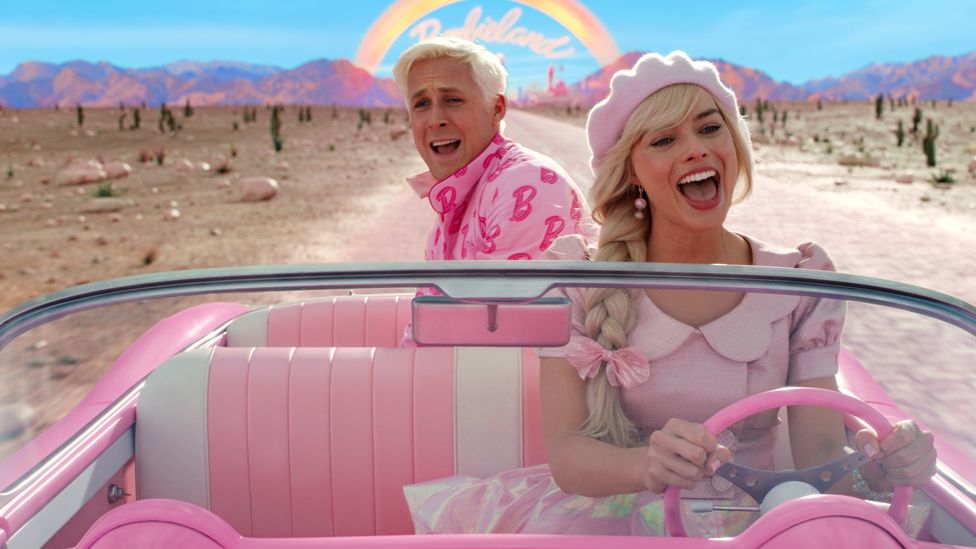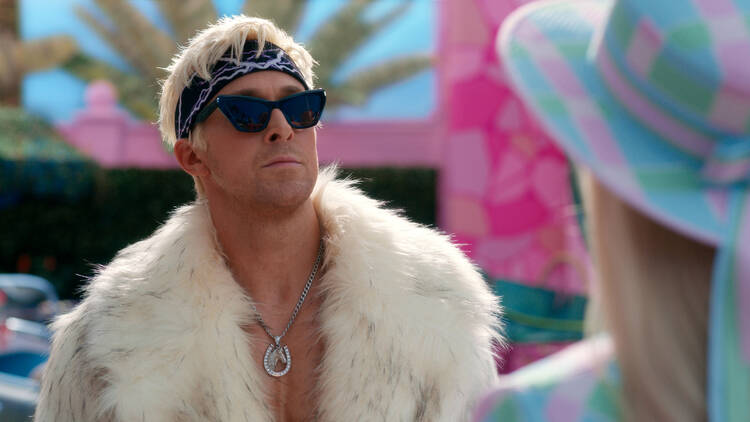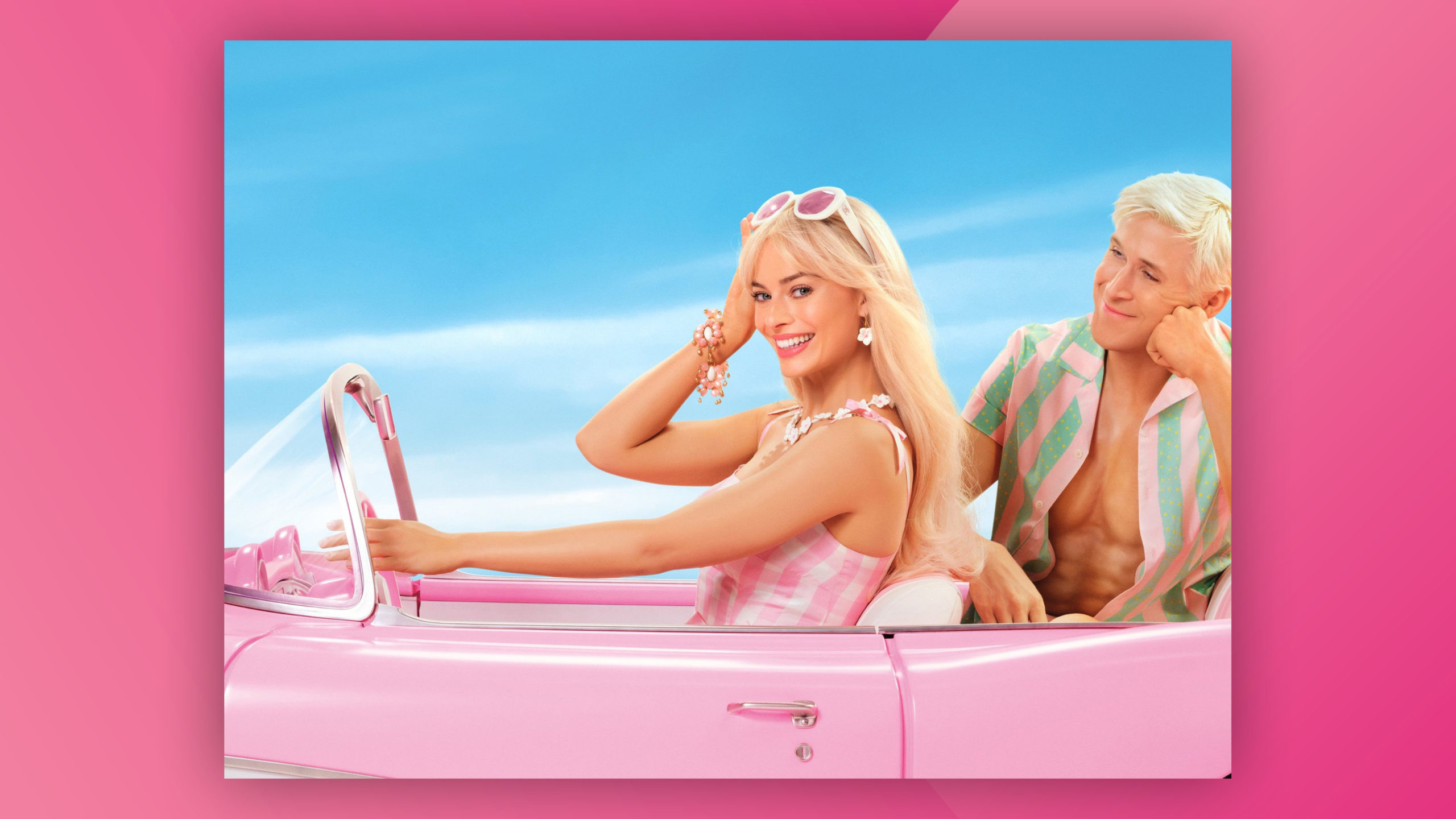We all know Barbie; Crown jewel of toy maker, Mattel, arguably the most famous doll in the world, and a feminist icon that’s garnered both praise and controversy over her many decades of existence. Indeed, Barbie has become the quintessential girls’ toy, one that has represented glamour, possibility and success to anyone willing to believe in her. As Aqua’s famous 90’s pop song inspired by the famous doll declares; “Life in plastic, it’s fantastic.”
That mantra however also nicely sums up the reason why Barbie has come under fire by some in the post-feminist movement era. Unrealistically proportioned, impossibly accomplished, and perfect in every way, Barbie doesn’t represent women so much as a false ideal of what corporate men think the ideal woman should be, or at least, that’s the argument by detractors. Despite Mattel’s attempts to tweak Barbie’s image in recent years, with plenty of career-oriented Barbie variations that see her taking on numerous esteemed professions, it’s a stigma that the otherwise beloved doll has failed to shake, even if that’s done nothing to eliminate her enduring appeal among children, in fairness.

This debate around the merits and issues surrounding Barbie feel naturally ripe for a feature film, but surprisingly, one has taken a very long time to materialize. Mattel initially tried to collaborate with Universal on such a project, but it died in the conception stage. The rights to Barbie then moved to Sony Pictures, for a new project that would have starred Amy Schumer in the lead role, but after production failed to move at a fast enough clip, Sony lost the Barbie rights, and they reverted back to Mattel. The third time ended up being the charm in the end, with Mattel finally inking a successful partnership with Warner Bros. to bring their iconic doll to the big screen, now with Margot Robbie in the lead role, and writer-director, Greta Gerwig of Lady Bird fame overseeing production.
The result, a Hollywood blockbuster simply titled, “Barbie“, then garnered even more public attention after the unexpected decision by Warner Bros. to release it at the same time as Universal’s epic, Christopher Nolan-directed biopic, Oppenheimer, creating a spectacular double feature opportunity that the internet has dubbed, “Barbenheimer.” Strangely enough, both movies, despite being polar opposites in tone, also deal with similar themes of existential dread, making them a weirdly perfect fit in terms of a disparate, but complementary audience draw.
In this review however, we’re exclusively talking about Barbie, a peppy, sugary and extremely pink fever dream that blurs the lines of reality, but nonetheless presents a lovable and endearing heart to go with that. Its story structure can be a little shaky at times, and there are a couple of moments where its female empowerment themes skim too far into pandering, but for the most part, Barbie is an absolute delight for any viewer, going all out with a creatively ambitious, delightfully bonkers tale about the absurdity of perfection.
Barbie, true to many meta comedy blockbusters, splits itself between the real world, and a fantastical, highly exaggerated setting; In this case, Barbieland. A matriarchal fantasy world where numerous Barbie variants do every job (or, since this is a perfect world that doesn’t require actual upkeep, appear to do every job), while the Ken’s play in the background as aimless pretty boys, Barbieland makes every day the perfect day; Beach days, dance parties, wardrobe fittings, etc.. Hell, even your morning toast flies onto your plate of its own accord, and Barbie’s can drift from their roofs down to their cars, as if they could fly like Tinker Bell. It’s absolutely ridiculous, but it does nail the right mix between being absurd, yet still being strangely credible within the confines of its bizarre world’s barely-existent rules.
You see, Barbieland exists as an extension of a little girl’s psychology. Thus, it operates similarly to how a child would see the world; Sunny, colourful, devoid of nuance, and with conflicts that range from amusingly immature to downright baffling. Even then, any conflicts that crop up in the world of Barbieland seem to be exclusively shouldered by the Ken’s, who compete for the attention of the Barbie’s with dancing, gymnastics and other stereotypically feminine activities. You can practically see the filmmakers winking at you with every girly exclamation and pink-tinged tour through Barbieland’s playhouse-like streets and surfaces, but it definitely gets laughs, thanks to Barbie’s often smart writing and direction.
It also helps that Barbie is packed to the gills with appealing and recognizable actors, especially within Barbieland. Margot Robbie’s lead Barbie, or ‘Stereotypical Barbie’, is strangely considered to be the most ordinary of the Barbie’s, despite her perfect arches, impeccable beauty, and impossibly charming, innocent demeanour. Ryan Gosling, meanwhile, plays the lead Ken role as ‘Beach Ken’, an inadvertent sidekick to Robbie’s Barbie who has chosen her as the idol of his affection. Both Robbie and Gosling are excellent leads that have standout comedic chemistry in Barbie, with Robbie’s big smile and sunny disposition providing a great complement to Gosling’s bold, yet affectionately stupid Ken variant. Gosling’s hilarious turn in Barbie is easily his best since 2016’s The Nice Guys as well, leaving one to wonder why Gosling doesn’t do comedies more often, at this rate.
“You can practically see the filmmakers winking at you with every girly exclamation and pink-tinged tour through Barbieland’s playhouse-like streets and surfaces, but it definitely gets laughs, thanks to Barbie’s often smart writing and direction.”
Robbie and Gosling merely play variants of many Barbie’s and Ken’s throughout Barbieland though. Other Barbie’s are portrayed by a diverse range of actresses, from Issa Rae to Alexandra Shipp to Emma Mackey, among others, while Kate McKinnon plays a plot-critical ‘Weird Barbie’, humourously representing the Barbie dolls that are mistreated and destroyed by children that, “Play with them too hard.” Promising Young Woman’s Emerald Fennell also has a funny cameo as perpetually pregnant Mattel doll variant, Midge, doomed never to have her baby in a world of virginal, ultra-fit Barbie dolls. That’s a bit grim, when you think about it. Poor Midge!
The Ken’s meanwhile include their own range of recognizable faces, from Simu Liu to Kingsley Ben-Adir to Ncuti Gatwa. Liu plays another particularly noteworthy variant, on this note, with his ‘Tourist Ken’ serving as the main rival and nemesis to Gosling’s lead Ken. Most humourous of all among the Ken’s however is Michael Cera’s Allan, the mostly unremarkable ‘best friend’ to Ken from Mattel’s doll line, whose entire character is based around being the most unremarkable token man in a world filled with significantly more attractive token men.
Most of these Barbieland characters are intentionally undeveloped, and that tracks, because they’re dolls that live in a fantasy world where nothing makes sense. Robbie’s Barbie and Gosling’s Ken are the predictable exceptions, going through the horror of developing real personalities and inner conflicts after their brief jaunt to the real world. This ultimately provides just the right touch of humanity within a world that’s built around childhood innocence, to the point where Barbie’s and Ken’s don’t actually know what to do with each other on dates, or even in each other’s bedrooms, since none of them have genitals! Some of that charming innocence must naturally be lost over the course of Barbie’s eccentric journey to greater wisdom, but this will nonetheless help its events resonate most with adults who were once little girls that played with Barbie’s many decades ago, who may just get a little piece of themselves back through their favourite doll being cursed with cellulite and flat feet.
One element of Barbie that’s worthy of unanimous praise is its fantastic production design. Yes, it’s garishly, eye-searingly pink in many Barbieland scenes especially, but even this totally unbelievable world manages to leap off of the screen and truly feel tangible, even when it’s so proudly removed from reality, and overall common sense.
The spectacle throughout Barbie also extends to some ‘action scenes’ that are occasionally featured, though they’re all done in a tongue-in-cheek manner. Whether it’s a cartoon-ish chase through the Mattel offices of the real world, or the Ken’s enacting a beach war built around sparkles and dance-offs, Barbie finds all sorts of clever and funny ways to play with blockbuster tropes, and turn them on their heads. Hell, even the climactic threat to the worlds of Barbie is a genuine surprise, one that the trailers and marketing ingeniously hid with a clever misdirect, and I won’t give further details on it. Believe me though, the third act obstacle of Barbie needs to be seen to be believed, and it definitely doesn’t disappoint!

Likewise, Barbie’s soundtrack consists of a lot of decent pop-flavoured fluff songs, featuring plenty of catchy licensed tunes from the likes of Lizzo, Dua Lipa, Charli XCX, Billie Eilish, and more. Nicki Minaj and Ice Spice also sample Aqua’s, “Barbie Girl” for a new tie-in single, “Barbie World”, with Aqua’s iconic one-hit wonder otherwise strangely absent from Barbie in its full styling. The, “Barbie World” revamp is fine, in fairness, though one will likely wish that Warner Bros. could have just made it work with Aqua. The best element of Barbie’s soundtrack however is that Ryan Gosling gets his own musical number, representing a moment so dumb in all the right ways that it’s bound to be a highlight for many viewers. If there’s any justice in the world, this song will get nominated at the Academy Awards for, “Best Original Song” next year!
Yet despite how great Barbie looks, and how effectively Greta Gerwig’s scripting and direction brings it to life, the movie could have used slightly tighter worldbuilding. Yes, this is a Barbie movie, and a very tongue-in-cheek one at that, so I realize that one shouldn’t bother taking its lore all that seriously. Even so, there are major developments in the crossing between Barbieland and the real world that are blatantly ignored, with one particular bombshell involving Barbie’s younger sister, Skipper just treated with a borderline shrug. I’m sure some of this opacity is intentionally presented as a joke, but considering the enormous amount of effort that went into realizing Barbie’s fantasy world, it would have been nice if that same amount of detail was more ubiquitous throughout the movie’s writing.
One can’t adequately assess a Barbie movie without acknowledging its inevitable feminist commentary. Many assumptions were made about Barbie leading up to its release as well, particularly within a modern era of female-oriented blockbuster media that’s been, well, shaky at best. For every Wonder Woman, there’s a Velma. For every Harley Quinn, there’s a She-Hulk: Attorney at Law. As important and timely as feminism-minded productions are, it’s been frequently proven that there’s a right way and a wrong way to present their ideas. Fortunately, Barbie makes for a great female-fronted production, one that does an excellent job of delivering smart, even-handed social commentary that will be just as smart and evocative to boys and men as it will be to women and girls… Mostly.
Through her travels to the real world with Gosling’s Ken, Robbie’s Barbie confronts many of the challenges and expectations that come with being a modern woman. Like a child, she’s not prepared for them, suddenly having her innocence taken away in a world that she knows nothing about. Ken, meanwhile, suddenly finds himself thrown for a loop in his own right, being so used to a matriarchal society where women have all the power, only to stumble into modern Los Angeles, where that’s definitely not the case. This could have very easily led to preachy diatribes and pretentious drivel, which would have otherwise undermined Barbie’s charming attitude and optimistic tone, so it’s very exciting to see that the movie doesn’t go for the low-hanging fruit here.
“At Barbie’s narrative core however is the existential journey undertaken by Robbie’s eponymous character.”
In fact, one of the most pleasant surprises within Barbie’s themes is that they aren’t afraid to examine the darker side of modern feminist agendas, ultimately demonstrating how they fall into the same trap of placing unrealistic expectations on what women should strive to be. This commentary is mainly presented from and made for the perspective of women, yes, but it’s done so smartly that it still works from a male perspective to some degree. The Ken’s and Allan illustrate this effectively by having to confront being glorified props in their world, for example, cutely inverting real-world women’s’ rights milestones like the suffragette movement, only presented through a patriarchy-skewing lens that keeps the laughs coming, and avoids feeling reductive.
At Barbie’s narrative core however is the existential journey undertaken by Robbie’s eponymous character. Humourously kicked off by Robbie’s Barbie musing loudly about death at a dance party, she’s then further greeted by cellulite, flat feet, and household appliances that no longer bend to her will. It’s a cutely miserable start to a journey that probes how being truly human involves being imperfect. Through discovering a chance to walk through the less comfortable side of life, Barbie learns that she can embrace a higher calling, giving her agency without pretending that the inverted nature of Barbieland is a superior alternative. That’s genuinely smart, as it shows that, like I said, unchecked feminist idealism doesn’t automatically lead to a better world, especially since being emotionally mature involves directly confronting pain and complex thoughts.
As frequently brilliant and surprisingly well-balanced as Barbie’s feminist themes are however, it still doesn’t completely sidestep some of the traps that tend to plague modern female-oriented media. There are a couple of scenes that awkwardly stop the movie to spell out the themes for the peanut gallery most notably, which hamper the pacing, and do somewhat stumble into the territory of talking down to the audience. These moments are very rare, thankfully, but they do distract during what’s otherwise a very well-done female empowerment story, one that won’t alienate males, but will still resonate especially effectively with females.
Barbie excels as one of 2023’s most enjoyable and creatively ambitious movies. It’s full of fun surprises and heartfelt moments, to the point where I couldn’t even adequately touch on America Ferrera’s and Will Ferrell’s characters in this review, both employees of Mattel in this movie’s real world, since mentioning virtually anything about them constitutes a spoiler. There are so many unexpected highlights to discover throughout Barbie in fact that it will do a lot toward restoring one’s faith in the creative potential of modern blockbusters, which this Summer has botched more than ever, with frustratingly few exceptions.
Barbie may not achieve the sheer cinematic prestige of Universal’s competing Oppenheimer, its strange release bedfellow, but it compensates very nicely by being so effortlessly entertaining and easy to love, for female and male viewers alike. If you’re going to do the ‘Barbenheimer’ double feature, Barbie certainly makes for a fantastic dessert to the heavy, yet satisfying cinematic meal of Oppenheimer, depending on whether you’re the type to eat your dessert first or last, I suppose.

When taken on its own merits however, Barbie has the makings of a true, female-fronted phenomenon; A superb blockbuster for the girls that the boys can enjoy just as easily. Like Margot Robbie’s glamorous protagonist, it may not be as perfect as it hoped to be, but a few bumps in the storytelling aren’t enough to take away from a lasting aftertaste of feel-good charm.
Come on, Barbie, let’s go party!

